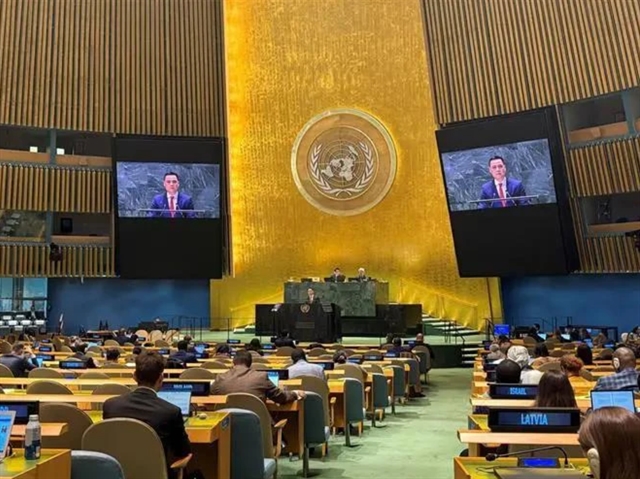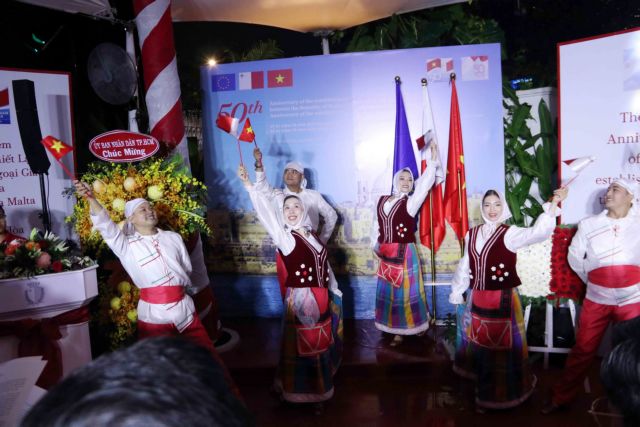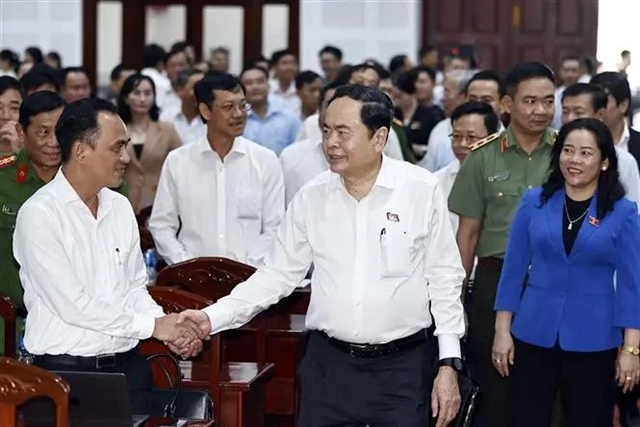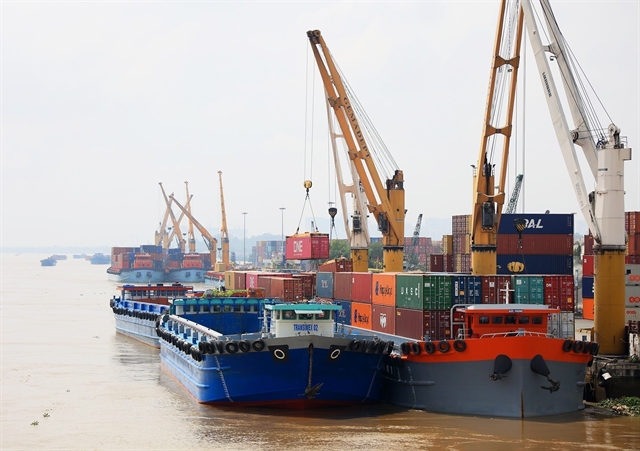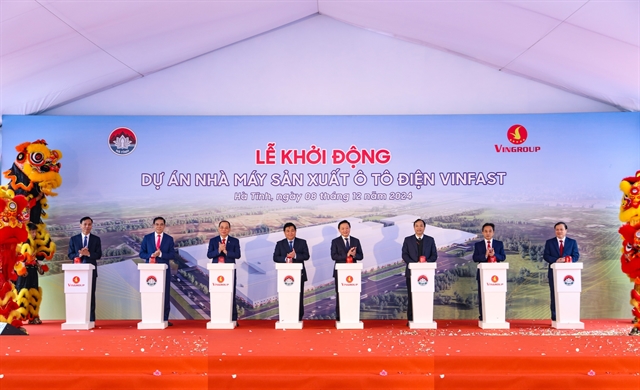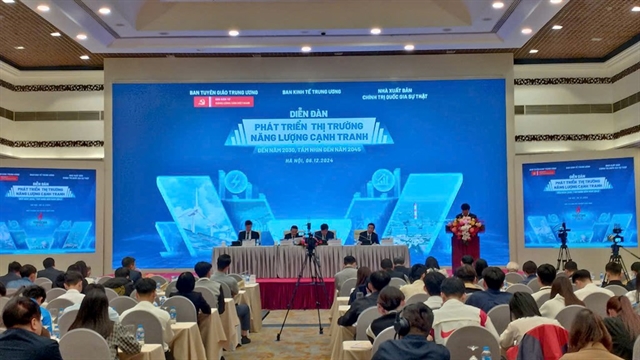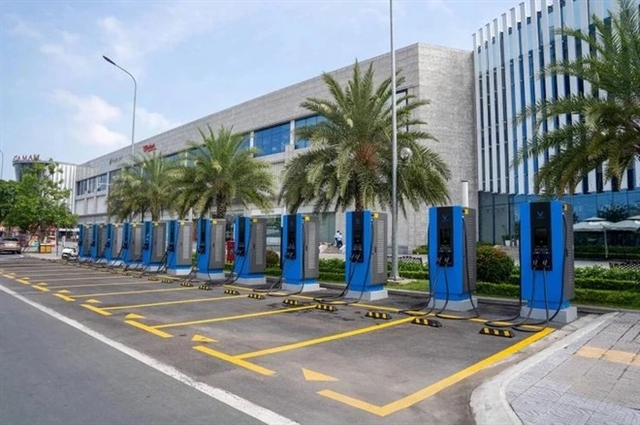

A new film is out about Việt Nam. It is set in the old colonial days and is about love and war.
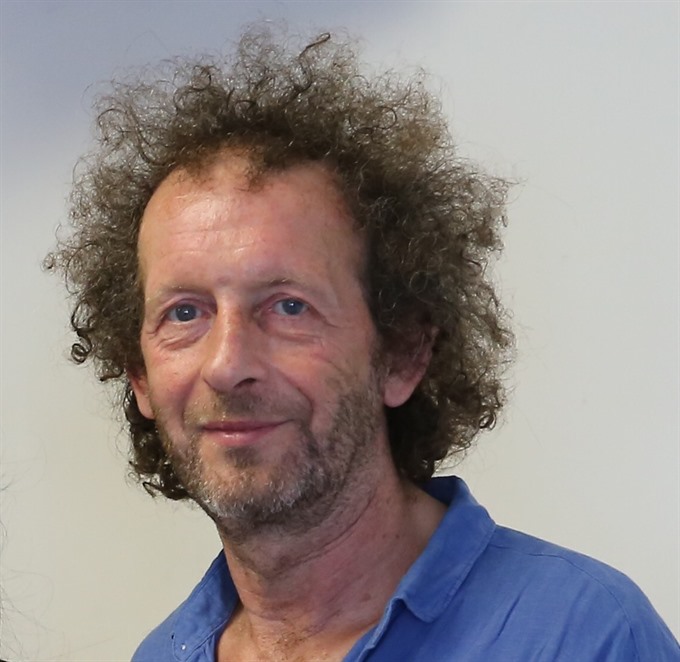 |
| Olivier Lorelle |
A new film is out about Việt Nam.
It is set in the old colonial days and is about love and war.
The man who made the movie Ciel Rouge is from France.
He visited Việt Nam twice before he started making the film.
The film won a very smart award.
Oscar-nominated French screenwriter and film director Olivier Lorelle was in Việt Nam this week for the premiere of his film Ciel Rouge (Red Sky). This is the fourth film made by a French director and entirely shot in Việt Nam, following The Lover, Điện Biên Phủ and Indochina –which were presented to the public twenty years ago and won international acclaim.
He speaks with Vương Bạch Liên about the film and his career.
Inner Sanctum: Set in Indochina in 1946, the film tells the story of a French soldier who is forced to torture and kill a young Vietnamese woman who is fighting for national independence. Instead, he decides to flee with her on an unpredictable journey to the heart of the jungle. Where did you get the idea for this film?
The idea came to me ten years ago, but I am a screenwriter and over those 10 years I only wrote for other films.
The starting point of my film Ciel Rouge (Red Sky), is the fascination of a man towards his enemy -- a woman who is very courageous. I need a battle, between two people from two cultures which are totally different. I need a war, not on the battlefield, but in a place where the soldier gets lost in a country which is swallowing him. The jungle attracted me.
And the film is a love story which begins with a soldier who is fascinated by the courage of his enemy. And I chose this Indochina War because it is the best war to make my film: French soldiers are lost in the country, in the jungle, and Việt Minh [resistance]soldiers are very courageous… And all around, there is the jungle which can be the décor, the background for the film.
What I want to convey to the public is not the images of war, but the message about the meaning of love: what is love, what love can bring to us in life. Does love really make one progress and give to the other what they didn’t have at the beginning?
Inner Sanctum: The film is shot in the jungles and mountainous areas of Việt Nam. Was it difficult to shoot the film in these locations?
Before shooting the film in 2015, I made two reconnaissance trips to Việt Nam in 2013 and 2014. Luckily, we got the support of Mathieu Ripka, a Frenchman who has deep knowledge about Việt Nam and who took part in the production of the film. He told us that it was possible to make the film in Việt Nam, and that we should not be worried about eventual difficulties.
In fact, many French films are made in Cambodia or in other Asian countries, but not in Việt Nam. Việt Nam has a reputation of being difficult for shooting because of complicated administrative procedures. But when we came here, we found it was great to work with the Vietnamese team. And we understand why you won the two wars... It’s true, I have to say it… People here work very efficiently, they are quick, and there were no problems about ego. And they are physically courageous.
We chose to shoot around Ba Bể Lake and Hà Giang’s remote communes, two magnificent regions that are not known in France. I hope that French people who come to see the film in France will want to discover those regions for themselves.
Inner Sanctum: I guess that the Indochina War may be a sensitive subject for the French people. Did you feel pressure when making this film?
It’s true that French people do not want to hear about the colonial wars. Those wars are always very delicate subjects.
Only three films in the history of French cinema have tackled the topic of the Indochina War (The 317th Platoon and Điện Biên Phủ by Pierre Schoendoerffer, and Indochine by Régis Wargnier). French people do not make films about the war. They have trouble showing political reality in cinema.
I found it difficult to get financing for Red Sky in France. Many French people couldn’t accept that there was a French man who opened fire on other French men. For them, it is not possible… But now as the film will soon be released in France, there is no political pressure about it.
Some years ago, I wrote the script for the film Hors-la-loi (Outside the Law) featuring the French colonial war in Algeria (nominated for Best Foreign Language Film at the 83rd Academy Awards).
Many people demonstrated in the street the day before the film was released. They said that it was an indictment against France, and that it was French funding for an anti-French film.
Recently, newly elected French President Macron said that the French people had orchestrated a crime against humanity with the war in Algeria.
And his statement raised a lot of anger among many French people. War is not an easy subject for the French people.
However, the Algeria War is still quite new while the Indochina War is already old. For me, making films to tell stories for the next generation is an important thing to do.
Inner Sanctum: You won international fame with several of your scripts, in particular for the Oscar-nominated Indigènes (Days of Glory) which won you the César award. But you were previously a Doctor of Philosophy. What motivated you to become a screenwriter, and then a director?
At the beginning, I wrote scripts for theatre. I also worked as a professor. And I wrote scripts for the cinema to earn money [laughs], to stop being a professor… It wasn’t a good reason. With the theatre, I did not earn money. And then writing for the big screen started to interest me.
Philosophy helped me a lot in this work as it is a very clear discipline. It helps me know what I really want to say in my film, what is the emotion linked to this idea.
And why did I become film director? Because I want to be able to tell my story in a more personal way. And because people often forget about the screenwriters [laughs].— VNS
GLOSSARY
Inner Sanctum: Set in Indochina in 1946, the film tells the story of a French soldier who is forced to torture and kill a young Vietnamese woman who is fighting for national independence. Instead, he decides to flee with her on an unpredictable journey to the heart of the jungle.
Indochina is the old colonial name for the part of the world that today includes Viet Nam.
To flee means to run away from somewhere that is dangerous.
The idea came to me ten years ago, but I am a screenwriter and over those 10 years I only wrote for other films.
A screenwriter is someone who writes the words for movies that are shown on screens.
The starting point of my film Ciel Rouge (Red Sky), is the fascination of a man towards his enemy -- a woman who is very courageous.
Fascination is a feeling of excitement and charm.
Courageous means brave.
And all around, there is the jungle which can be the décor, the background for the film.
Décor is everything that goes into making a stage or, in this case, a movie set, look as it does.
What I want to convey to the public is not the images of war, but the message about the meaning of love: what is love, what love can bring to us in life.
Convey means communicate.
Images are pictures.
Before shooting the film in 2015, I made two reconnaissance trips to Việt Nam in 2013 and 2014.
A reconnaissance trip is a trip that involves finding out what a place is like before going there to carry out a project there, such as making a film.
He told us that it was possible to make the film in Việt Nam, and that we should not be worried about eventual difficulties.
Eventual difficulties are difficulties that you find out about only at the end of a project.
Việt Nam has a reputation of being difficult for shooting because of complicated administrative procedures.
Your reputation is how other people see you and think of you.
People here work very efficiently, they are quick, and there were no problems about ego.
If something is done efficiently, it is done quickly and correctly
A person’s ego is his or her sense of self-importance.
Inner Sanctum: I guess that the Indochina War may be a sensitive subject for the French people. Did you feel pressure when making this film?
To be sensitive means to be easily upset.
Pressure, in this case, means having a force pushing against you that is made up of other people’s opinions.
It’s true that French people do not want to hear about the colonial wars.
Colonial wars are wars that were fought involving colonial powers. Such powers are made up of armies of countries that take over other countries to use their resources as if they are their own.
Those wars are always very delicate subjects.
A delicate subject is one that could easily cause people to be upset if spoken about.
Only three films in the history of French cinema have tackled the topic of the Indochina War (The 317th Platoon and Điện Biên Phủ by Pierre Schoendoerffer, and Indochine by Régis Wargnier).
To tackle a topic means to take it on in a way that it is a challenge to do so.
They have trouble showing political reality in cinema.
Reality is what actually happens in life as opposed to what people may talk about.
I found it difficult to get financing for Red Sky in France.
To get financing means to get money for something.
Many French people couldn’t accept that there was a French man who opened fire on other French men.
To open fire means to shoot a gun.
Some years ago, I wrote the script for the film Hors-la-loi (Outside the Law) featuring the French colonial war in Algeria (nominated for Best Foreign Language Film at the 83rd Academy Awards).
If the French colonial war in Algeria features in a movie, it appears in the movie.
Nominated means being put forward as something that should be among entries that can be chosen to win an award.
The Academy Awards are awards given out every year for the best movies in different categories. They are also known as the Oscars.
They said that it was an indictment against France, and that it was French funding for an anti-French film.
An indictment is an accusation.
Recently, newly elected French President Macron said that the French people had orchestrated a crime against humanity with the war in Algeria.
Orchestrated, in this case, means carried out.
A crime against humanity is a crime that is done on purpose to kill lots of people.
For me, making films to tell stories for the next generation is an important thing to do.
You, your brothers and sisters are one generation. Your children are another. Your parents and their brothers and sisters (your uncles and aunts) are another and your grandparents and their brothers and sisters are yet another generation.
Inner Sanctum: You won international fame with several of your scripts, in particular for the Oscar-nominated Indigènes (Days of Glory) which won you the César award.
If you have fame, you are famous.
But you were previously a Doctor of Philosophy.
Philosophy is a subject that deals with what is in the world and how it all makes sense to people.
What motivated you to become a screenwriter, and then a director?
To be motivated to do something means to be given a reason for wanting to start doing it.
Philosophy helped me a lot in this work as it is a very clear discipline.
A discipline, in this case, means a form of mental training.
It helps me know what I really want to say in my film, what is the emotion linked to this idea.
An emotion is a feeling that happens when the mind is excited by something.
WORKSHEET
© Duncan Guy/Learn the News/ Viet Nam News 2017
1. True; 2. False; 3. False; 4. True; 5. True.

